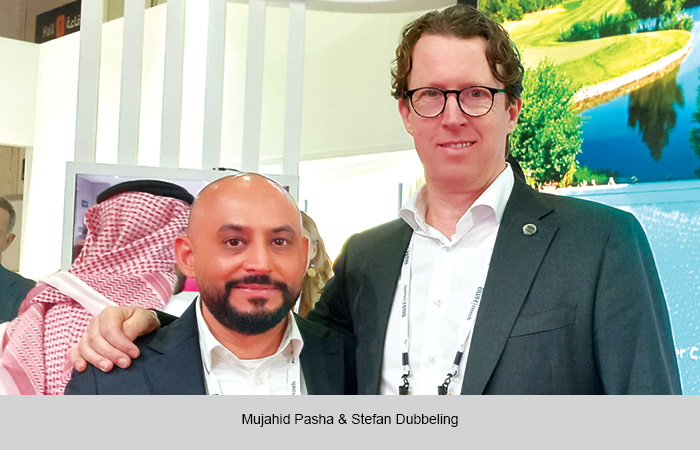Over the past few years, technology has revolutionised the travel, tourism and hospitality industries. This has become a key driver to enable smooth operations in the backend, thus ensuring revenue on a rapid growth. Industry leaders share their ideas with TravTalk.
Maher Koubaa Vice President—Airlines MEA, Amadeus
Airlines in the Middle East remain among the most successful in the industry. With further movement of air transport’s centre of gravity from West to East, the potential for growth in the Middle East’s aviation market is one of the best of any region globally. Nonetheless, the industry is still changing as it becomes truly customer-centric. Connected devices, Artificial intelligence& smarter data analytics are giving people more ideas and control over their journey. Airlines are made to rethink their business more drastically than ever before – from cost leadership to digital merchandising. Technology has always been a critical enabler to expanding global travel, both in terms of scale and access. Programmes such as IATA’s NDC and ONE Order standards are accelerating the pace of this change, opening up greater value to airlines and their customers alike. At Amadeus, our purpose is to shape the future of travel and enhance technology that makes travel simple, rewarding and enjoyable. Moreover, we continue to play an active role in industry working groups focused on distribution industry standards, passenger disruption, simplifying the airlines business and transparency in payments.
Michele Iozzo Managing Director— Middle East and Africa, Criteo
Shoppers in the Middle East are increasingly booking their travels from apps and smartphones Gdue nto the flexibility and accesibility these platforms. However, with the holiday booking period approaching, online travel agencies and suppliers need to ensure that convenience doesn’t come at the price of a great user experience. Connecting all of those touchpoints across platforms and devices, and providing the shopper with a unique and seamless booking experience is thus key for a successful booking season.
Stewart Smith Regional Director— Sojern
The economies of GCC regions are experiencing a huge shift towards digitalisation and we at Sojern, see this first-hand when it comes to digital media. The region has 100 per cent smart phone penetration and 70 per cent social media adoption, even higher than the US. The MENA region still lags behind the rest of the world in digital advertising spend amounting to less than $1 billion in 2016 but the opportunity and willingness to close this gap is taking place at both government and corporate levels.
Rami Mashini Vice President—Sales and Marketing for ME, Africa, Turkey and India, GTA
The travel industry is moving increasingly towards connecting futuristic tools. Adapting is a condition within the group to continue being competitive and responding to customers’ demands by providing an advanced technology platform that increases reach, revenue and yield for both the provider and the seller. Seasonality drives different trends to the Middle East region. However, in 2017 we noticed an increase in demand for eco-friendly (green) tourism, looking for undisturbed natural areas around South East Asia, reaching new destinations which Middle Eastern travellers have never explored before. Additionally, we all acknowledge the vast progress of the UAE passport. Today someone from the Emirates can now explore 140 countries with far less restrictions.
 TravTalk Middle East Online Magazine
TravTalk Middle East Online Magazine





